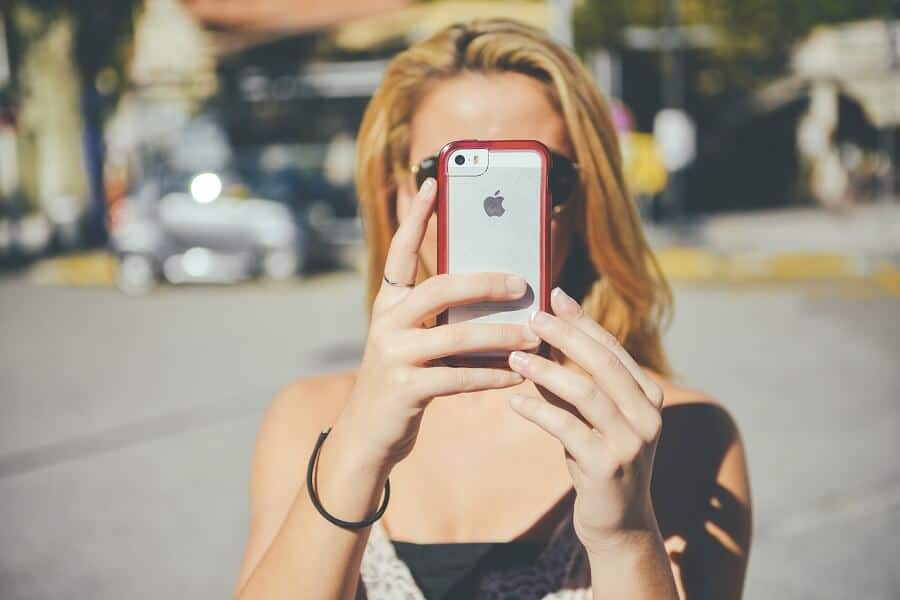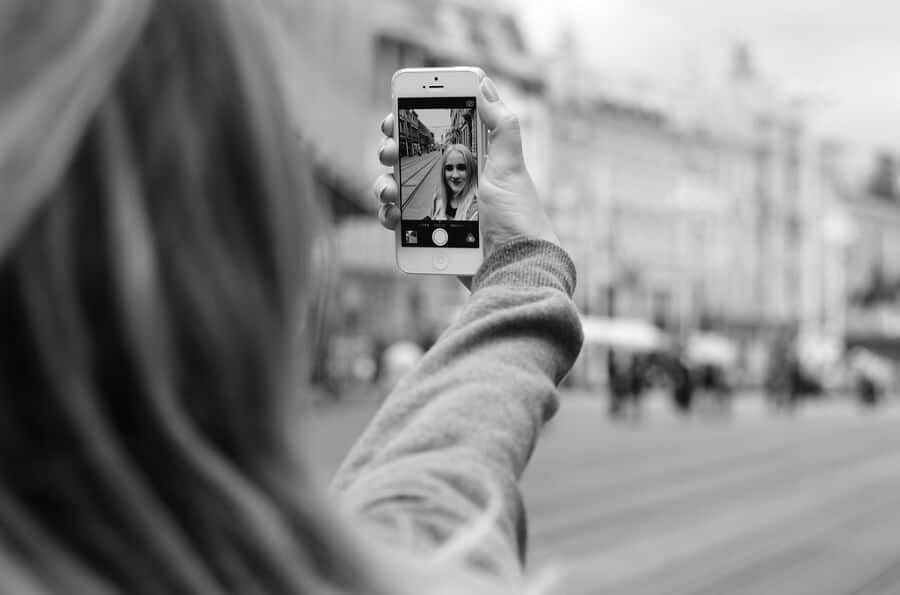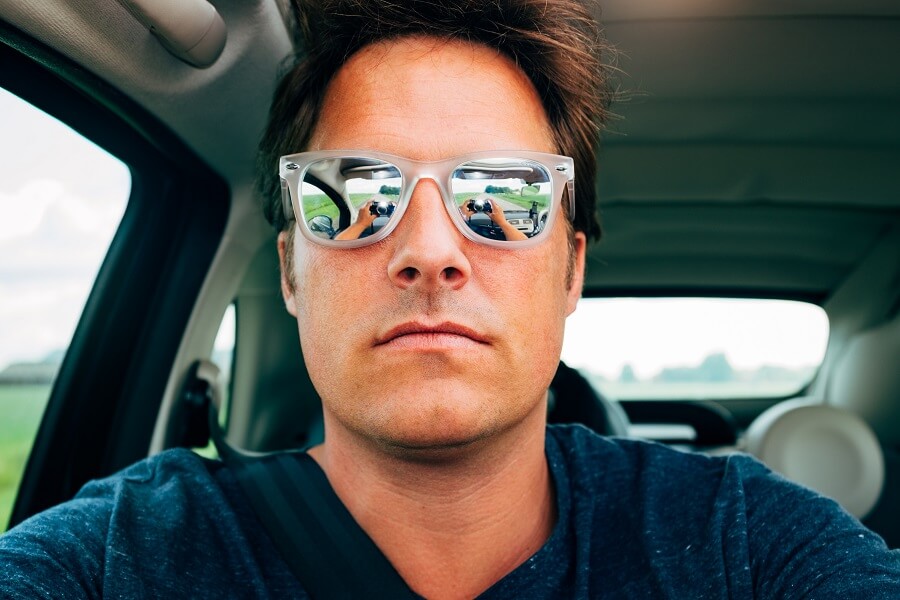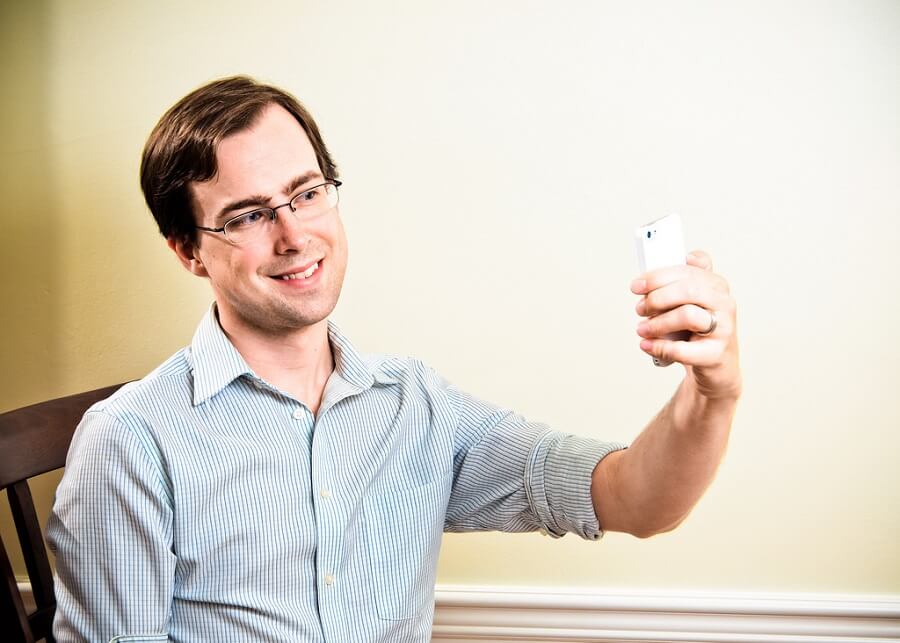If you are that one person in 20 that does not take selfies, you should know that you are a dying breed. Almost everybody takes selfies nowadays. Sure, the phenomenon started with teenagers and young adults, and it is still predominantly about them. However, even people who are parents of young adults have started taking selfies and sharing them on social media. Yes, sharing, because what would be the point in taking a selfie if you couldn’t share it with your friends and followers?

Are these signs that we’re all becoming narcissists? More and more studies are linking selfies and narcissism, and the results seem to point in that direction. Today, we’re going to take a closer look at the narcissism epidemic that seems to be taking social media by storm and changing us in the process.
Why Do We Post Selfies?
A recent study by Yongjun Sung et al. asked the exact same question. We cannot relate all of the answers they came up with directly to narcissism, but that is debatable. One of the main reasons why people take selfies and then post them on social media is attention seeking. Facebook selfies are nothing more than an attempt to validate your self-worth by receiving other people’s approval. This is without a doubt a narcissistic tendency that explains the connection between selfies and narcissism.
The second reason why people post selfies on social media is for communication purposes. A selfie is a very personal thing, especially since some people take selfies in bed or even while taking a bath. These are instances in which not many people should be able to see us. How does this build communication, you ask? Well, by receiving and replying to comments, or through the reactions you get. Reactions which are especially expressive now that you can love or get angry in response to a picture on Facebook.

A lot of people also want to build an archive of the most important moments in their live on social media. Lastly, we post selfies because we find it entertaining. Are you bored in class? Why not take a selfie and post it on Facebook with a funny caption? Depending on whom you ask, this too can be regarded as a form of narcissism.
Machiavellianism, Psychopathy, Selfies and Narcissism
Yet another study, this time coming from Ohio University, related selfies and narcissism to psychopathy, especially in men. This study looked at 800 men between 18 and 40 years of age. It asked them to answer some questions about their habits regarding photo posting on social media. Some of the questions were related to the number of photos they posted, and whether they were editing them or not.
The results correlate posting more photos of yourself on social media with narcissism, psychopathy, and machiavellianism. The specialist called the study the “Dark Triad” because the general understanding is that these traits are evil (or dark) in some way or another.

Psychopathy is characterized by an impulsive behavior and a general lack of empathy. Which would explain why people are only interested in posting pictures of themselves. Moreover, impulsivity stands as proof that some people feel the need to post a picture the moment they snap it. They feel such an urge to see themselves, that they don’t even think about editing the picture.
However, editing the pictures is strictly related to narcissism. There is this desire of creating an image of yourself that you feel comfortable with. More comfortable than you feel with your real self. If you are a narcissist, you seek other people’s approval because you feel you deserve it. You like it when people admire you, and you enjoy compliments and attention.
Finally, machiavellianism entails a manipulation of people without thinking about their opinions and needs. It seems to be pretty self-explanatory how a selfie manipulates reality. Most often than not, it does not present our true self. We get to choose the say we stand, the way we smile, the angle that makes us justice, and so on. No one will intentionally post a picture of themselves looking bad. Not if they have the option of making it look better.
Make no mistake, the study does not say that everyone who posts selfies on social media is a narcissist or a psychopath. However, the people who do, have a higher score in these traits than people who don’t.
Behavior That Explains the Connection Between Selfies and Narcissism
We’ve already established that not everyone who posts selfies on social media is a narcissist. However, there are some types of behavior that seem to point towards a higher connection between selfies and narcissism.
For instance, people who change their profile picture more often, exchanging one selfie for another are more likely to have narcissistic traits. The words people use to describe their pictures are also relevant. So are the comments that you make in response to people’s reaction to your picture.
If you tend to post selfies in which you promote yourself, this shows yet another link between selfies and narcissism. Furthermore, asking for approval from people that you don’t even know in real life is a sign that you feel the need for as many people as possible to validate your self-worth. The more you edit your selfies, the more narcissistic you are. That is because you want to make sure you present a perfect version of yourself to the public.

3 Types of Selfies that Make You Look Like a Narcissist
Since so many people are used to taking selfies, the basic version that included just a person’s face has been spruced up in a lot of creative ways. However, the fact that a selfie is not only about your face, does not mean you are less of a narcissist for taking and sharing it. Actually, it might mean you are even more narcissistic, according to the type of selfie you snap. For instance, here are 3 types that will definitely make you look like a narcissist:
- Gym selfies: We know, you take care of your body by going to the gym. But why do you think you also feel the need to take a selfie of yourself every single day you’re there? Can it be because you want people to admire your efforts and your shape?
- Sleeping selfies: So many people on the Internet claim that their loved ones took a picture of them sleeping, while they were actually taking a selfie. Even if it’s not a lie, why would you want to share a picture of you sleeping?
- Hospital selfie: We don’t think we have to explain why we find a connection between these types of selfies and narcissism. What other reason could you possibly have to post a picture of you in a hospital bed other than seeking attention and waiting for concerned replies?

What Is the Bottom Line?
The first thing we need to understand is that not everybody who takes selfies of themselves and posts them on social media is a narcissist. Actually, not many people are what you would call a real narcissist. However, what the studies show and what we can perceive by ourselves on a daily basis is that people who do share a lot of selfies tend to be more narcissistic than people who don’t. The other thing we should keep in mind is that many people have taken this practice too far. Consequently, this should come as a wake-up call for the rest of us.
